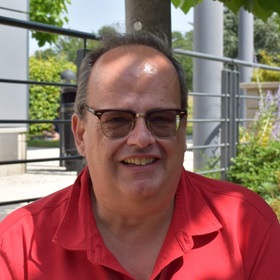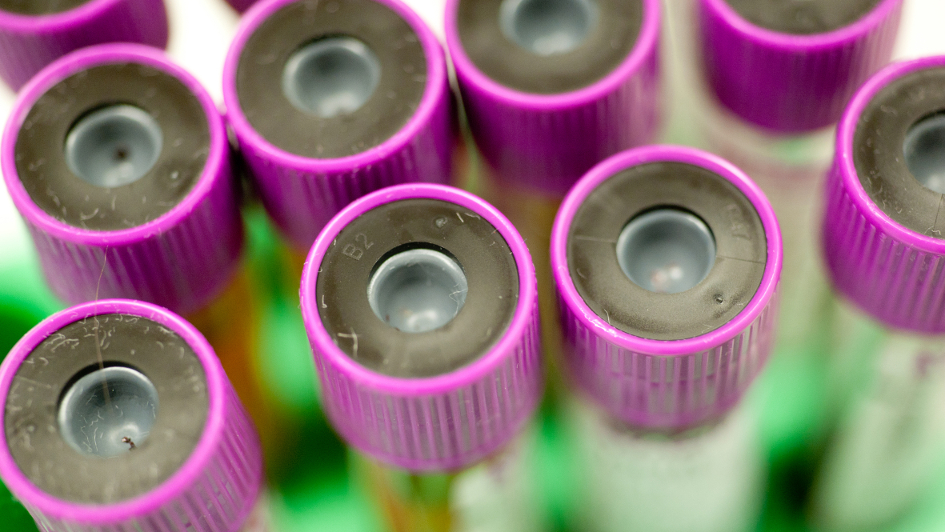RNA Biology and Molecular Therapeutics Group
Dr Paul Clarke’s Group is a key part of the Centre for Cancer Drug Discovery and focuses on the mechanisms of molecular cancer therapies and particularly targeting the addiction or dependency of cancer cells on RNA binding proteins or their complexes.
Research, projects and publications in this group
The RNA Biology and Molecular Therapeutics Group works within the multidisciplinary environment of the Division of Cancer Therapeutics to identify novel targets for drug discovery and to support the discovery of new small-molecule therapeutics to inhibit these targets.
Dr Paul Clarke
Group Leader:
RNA Biology and Molecular Therapeutics
Dr Paul Clarke is the leader of the RNA Biology and Molecular Therapeutics Group and is a highly experienced molecular and cellular biologist with many years’ experience of collaborative project-based drug discovery.
Researchers in this group
 .
.
I have expertise in the genetic manipulation of cells, alongside the use of chemical tools to determine the molecular pharmacology of novel therapeutic agents and the identification of mechanistic and predictive biomarkers. My research focuses on the therapeutic targeting of the cancer cell stress response and included the discovery of the clinically active HSP90 inhibitor luminespib (AUY922).
 .
.
I am an experienced molecular and cell biologist, supporting the research aims of the team within the Centre for Cancer Drug Discovery. My research is currently focused on the discovery of inhibitors of RNA processing.
 .
.
Email: [email protected]
Location: Sutton
I am helping to identify and develop innovative targeted cancer drugs, and understand their molecular pharmacology and mechanism of action. I was involved in the discovery of HSP90 inhibitors, including luminespib (AUY922), which shows activity in drug-resistant breast and lung cancers. I am currently a member of a collaborative team with a Pharma partner identifying WNT-pathway inhibitors.
 .
.
I am an experienced cell biologist funded by the Kidani trust to translate our team’s research into ovarian cancer models.
 .
.
I have been involved in several drug development projects that discovered small molecule inhibitors of PI3K and WNT signalling. I am currently part of the project team developing inhibitors of the cancer cell stress response. My research focusses on gene expression profiling techniques to help understand the mechanism of action of compounds, molecular determinants of sensitivity and markers of drug response.
Dr Paul Clarke's group have written 129 publications
Most recent new publication 2/7/2025
See all their publicationsThe RNA Biology and Molecular Therapeutics Group works within the multidisciplinary environment of the Division of Cancer Therapeutics to identify novel targets for drug discovery and to support the discovery of new small-molecule therapeutics to inhibit these targets.
Specifically, we aim to carry out cutting-edge research into the roles of RNA binding proteins and their complexes in cancer and to target the addiction or dependency of cancer cells on these proteins or complexes through the discovery of innovative and effective drugs.
RNA has a key role in enabling the flow of genetic information from DNA to proteins. It has become increasingly clear that mutation altered expression or activity of the cellular machinery required for processing, modification, translation, and turnover of RNAs have a critical role in the etiology of cancer.
We currently support validation and mechanism of action studies for commercially partnered drug discovery projects targeting RNA binding proteins that regulate splicing and protein synthesis initiation.
We employ a multi-disciplinary approach, integrating molecular and cellular biology with global profiling to determine the molecular impact of target modulation by genetic methods or small molecules on RNA binding, pre-mRNA processing and ribosome binding to mRNA. We use PROTAC-based strategies for validation of targets and their binding pockets, using bi-functional small molecules to induce target protein degradation.
We plan to build on these activities and introduce RNA oligo-PROTAC target validation methods and to expand our drug discovery activities to a wider class of RNA binding proteins that modulate RNA structure and processing.

New research identifies a more accurate way of predicting which blood cancer patients will relapse early
